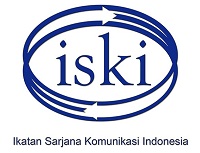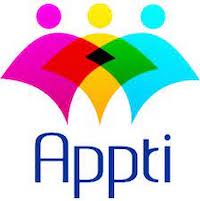Inclusive Culture in Educational Communication of Children in Primary School
Abstract
Keywords
Full Text:
PDFReferences
Asri, P. (2008). engembangan Program Bimbingan Sosial untuk Siswa SD yang Melaksanakan Pendidikan Inklusi. Universitas Pendidikan Indonesia.
Basrowi, & Sukidin. (2002). Metode Penelitian Kualitatif Perspektif Mikro. Surabaya: Insan Cendikia.
Creswell, J. . (2015). Penelitian Kualitatif dan Desain Riset. Yogyakarta: Pustaka Pelajar.
De Vito, J. A. (2017). The Interpersonal Communication Book (Thirteenth Edition). New York: Pearson.
Fisher, B. A. (1986). Teori-teori Komunikasi: Perspektif Mekanistis, Psikologis, Interaksional, dan Pragmatis. Bandung: Remaja Rosdakarya.
Fuglsang, L. (2008). Innovation and the creative process: Towards innovation with care. In Innovation and the Creative Process: Towards Innovation with Care.
Govinda, R. (2009). Towards Inclusive Schools and Enhanced Learning: a Synthesis of Case Study Findings from Different Countries. UNESCO.
Kompas, K. (2010). Pemerintah Siapkan Insentif Khusus Sekolah Inklusi.
Kuswarno, E. (2008). Metode Penelitian Komunikasi Etnografi Komunikasi. In Widya Padjadjaran.
Mulyana, D. (2001). Metodologi Penelitian Kualitatif: Paradigma Baru Ilmu Komunikasi dan Ilmu Sosial Lainnya. In Bandung: PT remaja Rosdakarya.
Mulyana, D. (2011). Ilmu Komunikasi: Suatu Pengantar. In PT. Remaja Rosdakarya.
Pontoh, W. P. (2013). PERANAN KOMUNIKASI INTERPERSONAL GURU DALAM MENINGKATKAN PENGETAHUAN ANAK | Pontoh | ACTA DIURNA KOMUNIKASI. “Acta Diurna” Vol I.No.I Th.2013, 1(1), 11. Diambil dari https://ejournal.unsrat.ac.id/index.php/actadiurnakomunikasi/article/view/974/788
Setyaningsih, R., Abdullah, A., Prihantoro, E., & Hustinawaty, H. (2019). Model Penguatan Nilai-Nilai Spiritual Dalam E-Learning Melalui Standar Literasi Media Pendidikan Online. Mediator: Jurnal Komunikasi, 12(1), 27–34. https://doi.org/10.29313/mediator.v12i1.4367
Trenholm, S., & Jensen, A. (2000). Interpersonal Communication. California: Wadswort Publishing Company Inc.
Triwardhani, I. J., & Chaerowati, D. L. (2019). Interpersonal communication among parents and children in fishermen village in cirebon Indonesia. Jurnal Komunikasi: Malaysian Journal of Communication, 35(2), 277–292. https://doi.org/10.17576/JKMJC-2019-3502-17
Triwardhani, I. J., Trigartanti, W., & Putra, R. P. (2020). Study of communication ethnography for entrepreneurship culture in the interpersonal relations of teachers and students. Jurnal Komunikasi: Malaysian Journal of Communication, 36(1), 109–123. https://doi.org/10.17576/JKMJC-2020-3601-07
UNESCO. (1990). World Declaration on Education for All and the Framework for Action to Meet Basic Learning Needs. World Conference of Education for All Meeting Basic Learning Needs.
UNESCO. (2003). Conceptual Paper: UNESCO Inclusive Education, a Challenge and a Vision. In Conceptual Paper: UNESCO Inclusive Education, a Challenge and a Vision. Paris.
Yulianti, Y., Hamdan, S. R., & Putri, D. W. (2018). Penguatan Nilai-Nilai Religius di Perguruan Tinggi. Mediator: Jurnal Komunikasi, 11(2), 177–187. https://doi.org/10.29313/mediator.v11i2.3978
DOI: https://doi.org/10.29313/mediator.v13i2.6873
Refbacks
- There are currently no refbacks.

This work is licensed under a Creative Commons Attribution 4.0 International License























